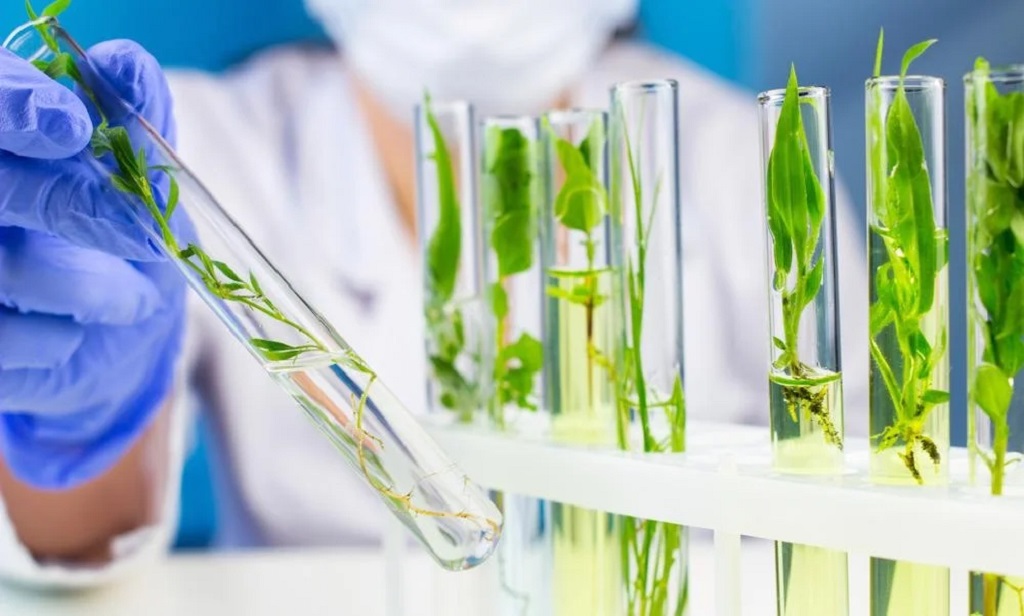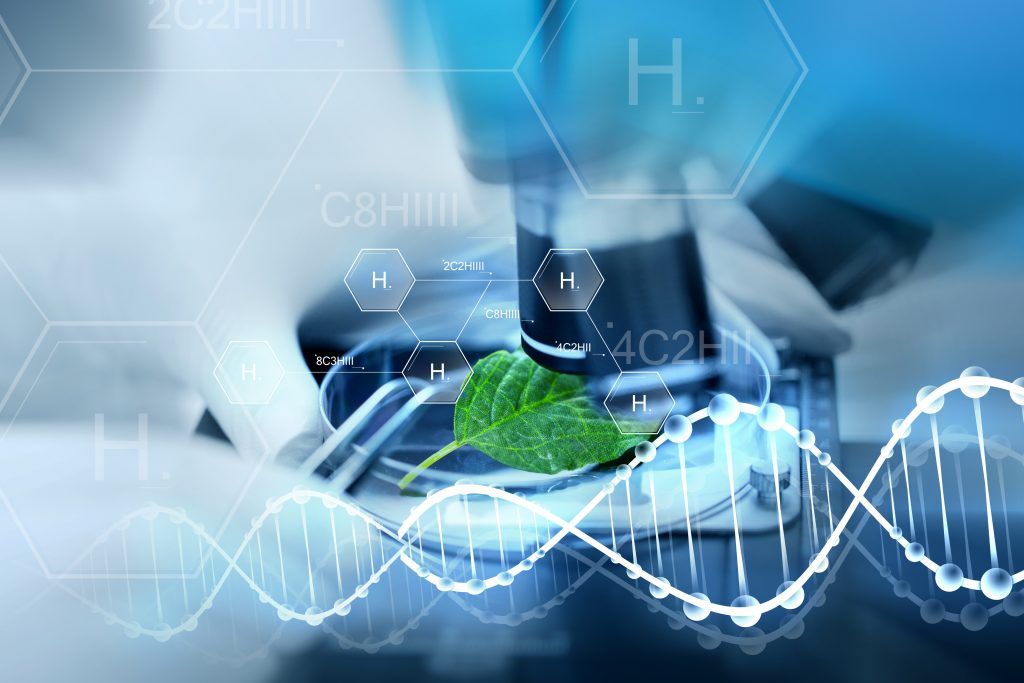
Today, we’re diving into the captivating world of biotechnology. Now, I know what you might be thinking – biotech, that’s some complex science stuff, right? Well, yes, but it’s also incredibly fascinating and relevant to our everyday lives. So, let’s take a journey together and explore how biotechnology useful for society but is also making our world a better place to live in.
The Basics of Biotechnology
First things first, what exactly is biotechnology? Think of it as nature-inspired problem-solving with a touch of human innovation. Biotechnology harnesses living organisms, cells, or molecules to create new products or processes that benefit society. It’s like the ultimate DIY kit for improving our world!
But how does it work, you ask? Well, imagine biotechnology as a toolbox filled with genetic scissors (enzymes), tiny machines (nanotechnology), and nature’s own chemists (microbes). Scientists use these tools to manipulate genes, design new drugs, create sustainable fuels, and even grow organs in a lab!

Medicine’s Miracle Maker
Alright, let’s talk about something we all care about – our health. Biotechnology has revolutionized medicine in ways we couldn’t have imagined. It’s like having a superhero in a lab coat.
Remember the COVID-19 vaccines that saved the day? Those are a product of biotechnology. Scientists used genetic engineering to create vaccines that train our immune system to fight off the virus. It’s like giving our bodies the cheat codes to win the battle!
But it’s not just about vaccines. Biotech has also given us gene therapies, which can potentially cure genetic diseases by replacing faulty genes with healthy ones. Imagine eradicating diseases like cystic fibrosis or sickle cell anemia at their roots.
Green Revolution 2.0
Now, let’s shift our focus to the environment. Biotechnology is playing a pivotal role in our fight against climate change. Think of it as Mother Nature’s sidekick.
We’ve all heard about renewable energy sources like solar and wind power. But did you know that biotechnology is making it possible to produce biofuels from algae and plant waste? These biofuels are cleaner, sustainable alternatives to fossil fuels, reducing our carbon footprint.
And speaking of carbon, biotech wizards are also creating carbon-capturing microbes. It’s like having microscopic vacuum cleaners that suck up excess carbon dioxide from the atmosphere, helping combat global warming.
Food for Thought
Let’s talk about our plates for a moment. Biotechnology is revolutionizing agriculture, ensuring we have enough food to feed our growing population while minimizing the impact on our planet.
Genetically modified (GM) crops are a prime example. They’re like crops with built-in superpowers. They resist pests, tolerate harsh climates, and require fewer pesticides. This means higher yields, reduced food waste, and fewer harmful chemicals in our food.
Biotechnology is also making it possible to produce lab-grown meat, which could be a game-changer for our planet. It’s like having all the deliciousness of a juicy burger without the environmental guilt. These lab-grown meats have a significantly lower carbon footprint compared to traditional livestock farming.
Rewriting the Genetic Code
Ever wondered about the potential to design your own DNA? With biotechnology, it’s not as far-fetched as you might think. Scientists are making strides in synthetic biology, which is like writing code for life.
Imagine a world where we can engineer bacteria to break down plastic waste or create plants that glow in the dark. Sounds like science fiction, right? Well, it’s becoming a reality thanks to biotechnology.
But it’s not just about creating novelty items. Synthetic biology has the potential to address some of the world’s most pressing issues, from pollution to energy production.
Fighting Infections with Super Antibiotics
You know those nasty superbugs that are resistant to antibiotics? They’re a real threat to our health. But biotechnology is on the case, working to develop super antibiotics.
These aren’t your average antibiotics; they’re like the Avengers of the microbial world. Scientists are using biotech to create new antibiotics that can combat even the most resilient bacteria. It’s like giving doctors a powerful new tool to fight infections and save lives.
Personalized Medicine
Okay, here’s where biotechnology gets really cool. Personalized medicine is like having a tailor-made treatment plan just for you. It takes into account your unique genetic makeup, making healthcare more effective and efficient.
Let’s say you have cancer. Instead of a one-size-fits-all treatment, doctors can use biotechnology to analyze your tumor’s genetic profile. This allows them to prescribe the most effective drug specifically designed to target your cancer, increasing your chances of recovery.
But it’s not just about treating diseases. Personalized medicine can also predict your risk of developing certain conditions, helping you take preventive measures early on.

The Promise of Regenerative Medicine
Remember those superhero movies where characters come back to life stronger than ever? Well, regenerative medicine is a bit like that.
Biotechnology is paving the way for regenerating damaged tissues and organs. Imagine being able to replace a damaged heart with a lab-grown one or restore sight to someone with a damaged retina. It’s like a medical miracle in the making.
Scientists are using stem cells and tissue engineering to grow replacement body parts, and the possibilities are mind-boggling. The day might come when we can heal injuries and diseases once thought irreversible.
Ethical Dilemmas and Challenges
Of course, with great power comes great responsibility. Biotechnology raises some ethical questions and challenges that we need to address. We must ensure that these amazing advancements are used for the greater good and don’t harm society or the environment.
For example, there are concerns about the safety of genetically modified organisms (GMOs) and the potential for unintended consequences in the ecosystem. We also need to consider the ethical implications of editing human genes and the potential for designer babies.
Regulations and ethical guidelines are essential to navigate these challenges and strike a balance between innovation and responsible use of biotechnology.
The Future of Biotechnology
So, what does the future hold for biotechnology? Well, the sky’s the limit. As technology advances, we can expect even more mind-blowing discoveries and applications.
Imagine a world where we can print organs on-demand, where cancer becomes a treatable condition, where we can reverse the effects of aging, and where we can tackle environmental problems head-on. Biotechnology is on the path to making these dreams a reality.
But it’s not just about scientists and researchers. We all have a role to play in embracing biotechnology and advocating for responsible innovation. It’s about shaping a future where biotechnology benefits everyone.
Conclusion
In a world filled with challenges, biotechnology is our ace in the hole. It’s the Swiss Army knife of science, capable of addressing some of the most pressing issues facing humanity. From healthcare to the environment, agriculture to energy, biotechnology is leaving its mark on every aspect of our lives.
As we journeyed through this world of wonder, we discovered how biotechnology is like a beacon of hope, a force for good, and a catalyst for change. It’s not just science; it’s a story of innovation, creativity, and the power of human imagination.
So, the next time you hear about biotechnology, remember that it’s not just about labs and test tubes; it’s about us, our health, our planet, and our future. It’s a story of how biotechnology useful for society, making the world a better place, one breakthrough at a time.
FAQs
- What is biotechnology, and how does it work?
Biotechnology is a field of science that harnesses living organisms, cells, or molecules to create new products or processes that benefit society. It works by using tools like genetic engineering, nanotechnology, and microbial processes to manipulate genes, design drugs, create sustainable fuels, and more.
- How has biotechnology revolutionized medicine?
Biotechnology has revolutionized medicine by enabling the development of vaccines, gene therapies, personalized medicine, and regenerative treatments. It has played a crucial role in fighting diseases, improving healthcare, and increasing our understanding of genetics.
- How is biotechnology helping combat climate change?
Biotechnology is addressing climate change by producing biofuels from algae and plant waste, creating carbon-capturing microbes, and developing environmentally friendly solutions for various industries. It contributes to reducing carbon emissions and promoting sustainability.
- What are genetically modified (GM) crops, and how do they benefit agriculture?
Genetically modified crops are plants whose DNA has been altered using biotechnology to enhance their traits, such as resistance to pests or tolerance to harsh conditions. GM crops increase agricultural productivity, reduce the need for pesticides, and contribute to food security.
- What are the ethical challenges associated with biotechnology?
Biotechnology raises ethical concerns, including the safety of genetically modified organisms (GMOs), the potential for unintended consequences, and the ethical implications of gene editing in humans. Responsible regulation and ethical guidelines are essential to address these challenges while promoting innovation.
